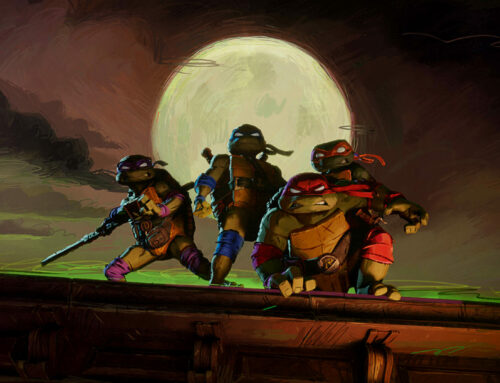This is a continuation of the previous post which started giving an overview and summary of my participation in the ‘Revisiting The Truth and Reconciliation Commission’s Faith Community Hearing’ which took place this week. Here are some selected highlight moments that could be captured on The Tweeterer in 140 characters of less:
FROM THE TWITTERER [Day 1 of 2]
While 140 character messages don’t capture the whole of what was experienced, hopefully they will help you to catch a bit of a glimpse:
#TRC Michael Weeder (Anglican): I have to ask, Where is God in this? And what is the work of God in this moment?
#TRC Michael Weeder (Anglican): What was abnormal then? And what of that abnormal has become normal for us today? We need to revisit.
#TRC Michael Weeder: It seems darker than yesterday. We have to drink deeply from our own wells.
#TRC: Michael Weeder: You don’t shout at people, but there comes a time when you need to. It’s time to extend this to big business.
#TRC Michael Weeder: The chains have in many ways slipped to the mind.
#TRC Vuyani Nyobole (methodist): We are prone to many of the sins that it is our duty to condemn.
#TRC Vuyani Nyobole: Unfinished agenda of TRC – TRC unfortunately favoured the perpetrators over the victims. Shortcoming of previous TRC
#TRC Vuyani Nyobole: We focused too much on the Truth and not enough on the Reconciliation. It was therapeutic in many ways.
#TRC Vuyani Nyobole: it wasn’t the responsibility of the government to bring reconciliation. That should have been led by faith communities.
#TRC Vuyani Nyobole: There is a responsibility on us as faith communities for critical reflection on the state of things.
#TRC Vuyani Nyobole: If there is corruption in the government, most of those people sit in our pews. It is the responsibility of the church.
#TRC Dion Foster (methodist): I don’t think we’re living in a post apartheid society. Law has changed. Society remains largely unchanged.
#TRC Archbishop Tutu interrupts with, “That’s why I am glad I retired when I did.” (Laughter)
#TRC Dion Foster on Culpability: We are a large religious community in this country. But we have not translated that presence into action.
#TRC Yasmin Sooka (panel) The presidents fund is really huge. But 19 years later, reparations have not yet happened?
#TRC Kevin Dowling (catholic): Where we failed was the statements didn’t necessarily move to the conversion process. The same is true today.
#TRC Kevin Dowling: Unless the privileged community go through a conversion process that affects them personally, change has not happened.
#TRC Kevin Dowling Unless you’ve held the hand that that statistic represents, you know nothing about their story.
#TRC Kevin Dowling: a transitional justice must always begin from the story and the voices of the victims.
#TRC Kevin Dowling: Retributive justice or Restorative justice – are we going to heal or punish?
#TRC Kevin Dowling: No transformation has taken place until we see economic justice and restoration.
#TRC Kevin Dowling: Restitution. Our victims, our survivors, were sold short.
#TRC Kevin Dowling: If you want peace, you have to work for justice. But very very often peace agreements to end violence sacrifice justice.
#TRC Kevin Dowling: Who will take us forward? An empowered violated disenfranchised people. We need to be in the trenches with our people.
#TRC Kevin Dowling: We cannot anymore carry on with the perception that government must do everything. Cos government can’t do everything.
#TRC Kevin Dowling: We need to forget about appearing on TV and be in the shacks, in the trenches, in the reality of our people.
#TRC Kevin Dowling just brought up the issue of immigration which is going to “exacerbate the issue of poverty.” The govt needs to address.
#TRC Piet Meiring (panel) we have to remember that justice and reconciliation have to go hand in hand. You can’t have one without the other.
#TRC Yasmin Sooka: Restorative justice and punitive justice. What about the forgotten one of Redistributive justice?
#TRC Jerry Pillay (Presbyterian): Gender justice is also an important need for the church to focus on. And ecojustice.
#TRC Jerry Pillay: The need of practical aspects of reconciliation has largely been swept under the carpet. Many of us just want “to move on”.
#TRC Jerry Pillay: Churches need to ask, “How do we actually revisit what we do in light of changing contexts?”
#TRC Jerry Pillay: The vision must come with a reminder that this is a biblical imperative. Jesus prayed that we should be one.
#TRC Yasmin Sooka: in reality, gender equality remains elusive. Violence against women has become normalized.
#TRC Piet Meiring: the importance of the twinning of Unity and Reconciliation is an important thing we must never forget.
#TRC Kobus Gerber (NGK) An event like this brings tears to our eyes. Just to experience what we were part of being done to the people.
#TRC Peter Grove (URC) Will we make progress if we just repeat what was said 17 years ago? I don’t think so…
#TRC Peter Grove: We live our lives between the tension of memory and expectation.
#TRC Peter Grove: People constantly rewrite the past and redefine the future.
#TRC Peter Grove: Before we can move to attempts to do certain things we need to ask ourselves how to be certain things.
#TRC Peter Grove: We cannot talk about the squatters camps and the townships. We need to meet our brothers and sisters there.
#TRC E G Fourie (NHK) My church made it very clear to me I’m here in my individual capacity.
#TRC E G Fourie: So in my individual capacity i want to say I’m sad that I’m here in my individual capacity.
#TRC [E G Fourie just blew this whole thing open with raw rough real tear-filled-and-causing testimony. Heavy. So good.]
#TRC E G Fourie after heavy speech about some of the race struggles within his church: This is where our church is…now.
#TRC E G Fourie: Many moons ago when i was at school we had no such thing as political correctness.
#TRC E G Fourie: kids who were mentally challenged we called specials. They were put in a special class.
#TRC E G Fourie: My church when it comes to issues of reconciliation is in a slow class.
#TRC E G Fourie:Now we call it a special needs class. My church has special needs.
#TRC EG Fourie: We have a special need for forgiveness.
#TRC [E G Fourie gets standing ovation as he breaks down and Tutu goes forward and embraces him. Real moment.]
#TRC Amie van Wyk: Let me explain my name. My name is Jan. My dad’s name is Jan. Our worker was Jan. The donkey’s name was Jan.
#TRC Amie van Wyk: So my mom changed my name. (Tutu in loud hysterics)
#TRC Daniel Andrews (AFM): We must see what is happening in society through the eyes of those who are suffering.
#TRC Glenda [panel]: Intergenerational trauma that adults carry that we must deal with so children don’t carry the scars on.
#TRC Frank Chikane (AFM) The constitution must reflect what the Lord wants us to be.
#TRC Frank Chikane: If justice calls for us to go this way we must do it, whatever the cost.
#TRC Tutu: God puts Himself/Herself in our hands. And we’ve messed up His reputation.
#TRC Tutu: I actually saw God smiling through the tears today. Thank you for wanting to help Me make my world a better place.
#TRC Tutu: It is up to you and you and you whether this country becomes a hell or a paradise. God doesn’t have anyone else.
So those are a number of the Tweets i sent out while listening on day 1 – even though you might not have been there ad even though these do not fully carry the heart of the different testimonies, there is still food for thought in here and enough to make you stop and go, ‘Wo!’ and hopefully think and reflect some more.
[To continue on to Part III and the tweets from Day 2 of the Commission, click here]







[…] [To continue to some of the live tweets that i composed that give a glimpse into some of the ideas t… […]